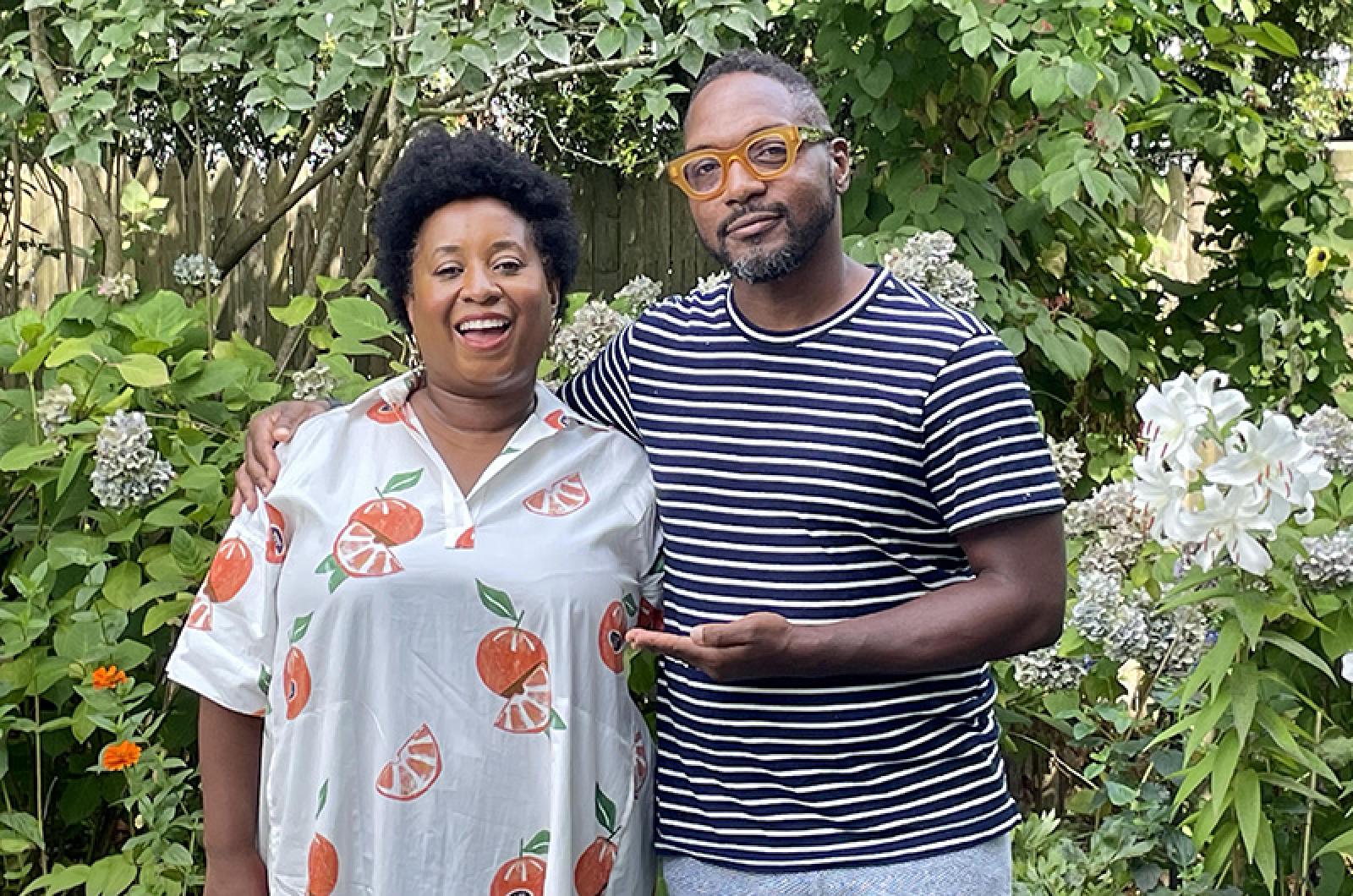After a lunch of fried chicken with blueberries, peaches, black-eyed peas and honey at the Cook the Vineyard event on Tuesday at Atria restaurant in Edgartown, two Black culinarians redefined the meaning of food writing. Cooking, for them, is about health, justice, tradition and joy; about recovering Black foodways for the modern world.
“The summer of 2020 changed everything for Black food writers,” said Nicole A. Taylor, author of Watermelon and Redbirds: A Cookbook for Juneteenth and Black Celebrations, the first-ever Juneteenth cookbook.
She was joined in the Vineyard Gazette Media Group event by fellow speaker Bryant Terry, winner of the NAACP Image and James Beard awards, who recently released his sixth cookbook, Black Food.
The event, “Beyond Recipes: How Stories Shape the New Cookbook,” was moderated by Bon Appétit magazine editor-in-chief Dawn Davis.
Both speakers spoke of their circuitous journeys into food writing.
“Before I thought about writing books, I was a grassroots activist. I was working at the intersection of poverty, malnutrition and institutional racism,” said Mr. Terry.
He found particular inspiration with the Black Panther Party’s food justice efforts in the ‘60s and ‘70s, especially their free breakfast for children program.
“We often talk about Black folks having some of the highest rates of preventable dietary illnesses,” he said, “but so often we have a very simplistic way of talking about it.”
Mr. Terry’s work aims not to vilify Black cuisine as unhealthy, but to recover and remove the institutional barriers to that traditional cuisine for a new generation of young activists.
Mrs. Taylor began her career as a public health educator in Atlanta and New York, but, she says, “my obsession with food was always in the background.” She first learned the history of Juneteenth in college, but felt she didn’t truly absorb its meaning until she attended a celebration for the holiday in Fort Greene Brooklyn.
“I remember seeing a Black kid, maybe eight years old, riding around the park on a pony,” she said, “and his face was so full of joy and freedom and liberation.”
Her desire to recreate that feeling led her to start hosting yearly Juneteenth celebrations and, eventually, to writing her third cookbook.
Neither Black Food nor Watermelon and Redbirds are traditional cookbooks, but they are both designed with usability in mind. Black Food, said Mr. Terry, was written as an extension of previous work going back to his 2006 cookbook, Grub, written with Anna Lappé: “we wanted to talk about all the problems with industrial agriculture, but also to create something solutions driven, not to leave people feeling helpless.”
His newest book, a curation of work from more than 100 contributors, puts analytical essays and poetry alongside nuts and bolts techniques and recipes. Part of the problem with the modern food system, he said, is that it takes food out of culture, turning it into a commodity. This approach was deeply influenced by his now seven-year chef-in-residency position with the Museum of the African Diaspora; he expanded more on these issues at a dinner event with MoAD on Wednesday night.
Asked for a recipe recommendation from Black Food for Islanders cooking dinner this week, Mr. Terry recommended a vegan blueberry cheesecake from chef Malcom Livingston III as the best way to convince people that vegan food can still be delicious.
Mrs. Taylor suggested her squash and cheddar biscuits, based on the volume of local squash she has seen on the Island since her stay began, but she said that you don’t need to go to a local farmers market to make quality food.
“I was happy to go home and get out of my bougie New York culinary bubble for the pandemic,” she said. “I always tell people that, at the supermarket, they should shop like their grandma would.”
Her biggest tip, though, was to just get into the kitchen without fear of making mistakes, and the best way to do that was to cook for a celebration: “It’s so much easier to create a special, colorful, nutritious meal when you are cooking for someone else.”






Comments
Comment policy »